Headlines
Danbatta urges youths to embrace digital skills

Nasiru Yusuf
The adoption and utilisation of Information and Communication Technology (ICT) is synonymous with empowerment, as it transforms processes efficiently acting as an enabler of effectiveness in operations in every sector of the economy, including commerce, agriculture, health, security and governance.
KANO FOCUS reports that Umar Garba Danbatta, the Executive Vice Chairman (EVC) of the Nigerian Communications Commission (NCC), made this assertion on Thursday, while delivering the 10th and 11th combined Convocation Lecture of the Fountain University at Osogbo, Osun State.
In the paper titled: “Empowering the Nigerian Youth though Information and Communication Technology”, Danbatta recalled the impact of ICT revolution in all parts of human endeavour across countries and continents, insisting that technology will continue to penetrate and foster qualitative and quantifiable changes in all aspects of life.
In all continents of the world, people, organisations and countries have continued to witness leaps and bounds in economic, social and political activities through instrumentality of ICT, which, according to Danbatta, has meshed computing, information and communication technology to catalyse development in ways and manners humans never envisaged decades ago.

According to Danbatta, Uber, the world’s largest taxi company, owns no vehicle; Airbnb, the world’s largest accommodation provider, owns no real estate; Facebook, world’s most popular public-facing digitally-mediated social networking platform, creates little or no content; Alibaba, a leading global retailer, has little or no inventory, yet they have become signposts of prosperity riding wholly on ICT resources.
To Danbatta, it would be a failing prophesy decades ago if anyone had said a company with no vehicle, just via an application, will control more than 75 million active commercial drivers in, at least, 80 countries.
It would also be contested that through a mere app, a company will provide accommodation to millions of travellers and tourists in more than 100,000 cities of the world.
Similarly, just as Alibaba, without inventory, had over 828 million annual active customers across its China retail markets, as at June 2021.
Needless to mention that the troves of contents synonymous with Facebook are actually generated by its 2.89 billion monthly active users.
The NCC CEO stated that the foregoing contextual demonstrations of the possibilities of ICT explain Federal Government’s policy decisions to strengthen ICT adoption in building a robust digital economy in Nigeria, eloquently expressed in the National Digital Economy Policy and Strategy (NDEPS), 2020-2030; the Nigerian National Broadband Plan (NNBP), 2020-2025 and other series of policies, guidelines and regulations derivative of the NDEPS and NNBP.
He explained that adoption of digital revolutions by government is creating multiplier effects across critical sectors, aiding job creation, better governance, youth empowerment and overall socio-economic development.
“It is the reason this objective reality is cited as the Fourth Industrial Revolution (4IR).
Indeed, for over 10 years, ICT has consistent contributed more than 10 per cent of the Nigeria’s Gross Domestic Product (GDP) – the telecom sector alone contributed 12.45 per cent to GDP as at the fourth quarter of 2020,” he said.
Given that Nigeria accounts for 82 per cent of Africa’s ICT market and 29 per cent of continental Internet usage and sub-Sahara Africa being the fastest growing region for ICT adoption, the Federal Government, in its determination to ensure that the nation harness full benefits of ICT, instituted a broadband vision that will see Nigeria as a society of connected communities of high-speed broadband access and connectivity.
The EVC said the envisioned society will deliver Internet connectivity speed 10 megabits per second (Mbps) in rural areas and 25 Mbps in urban areas by 2025. Additionally, effective coverage will be available to, at least, 90 per cent of the population by 2025 at a price not more than N390 per one gigabyte of data.
Explicating further, the professor of telecommunications engineering informed the audience that the NCC has connected to the policies of government through its Strategic Management Plan (SMP) 2020-2024 and the Strategic Vision Plan (SVP), 2021-2025, which streamline the provision of key extant policies for effective implementation by the Commission.
Danbatta, therefore, passionately appealed to the Nigerian youths to take advantage of Federal Government’s laudable policies, which have found expression in many activities of the Commission targeting the Nigerian youths.
These activities and interventionist programmes has, as primer, the ICT Hubs Support and Engagement programme, which brings youths together in the Nigerian tech ecosystem to deliberate and recommend frameworks and strategies for the development of the sector.
He stated that the overarching objective of the engagement is to harness the innovative and creative energy of the young people to promote ICT innovation and entrepreneurship, provide the linkage between policy makers, industry, entrepreneurs and tech enthusiasts to leverage the power of digital technology through local content development.
“This engagement and collaboration aligns with the Commission’s policy of inclusiveness which by the reckoning of development scholars, is imperative for growth and development,” he said.
Earlier in his welcome address, the Vice Chancellor of the University, Olalekan Sanni, described Danbatta as an accomplished academician and administrator, whose wealth of experience was considered worthy of tapping into by the university community towards proffering solutions to the issue of youth empowerment and to suggest ways for enhancing Nigeria’s socio-economic life through effective leveraging of ICT.

Headlines
Kano business community thanks FG for N5bn Singer market relief
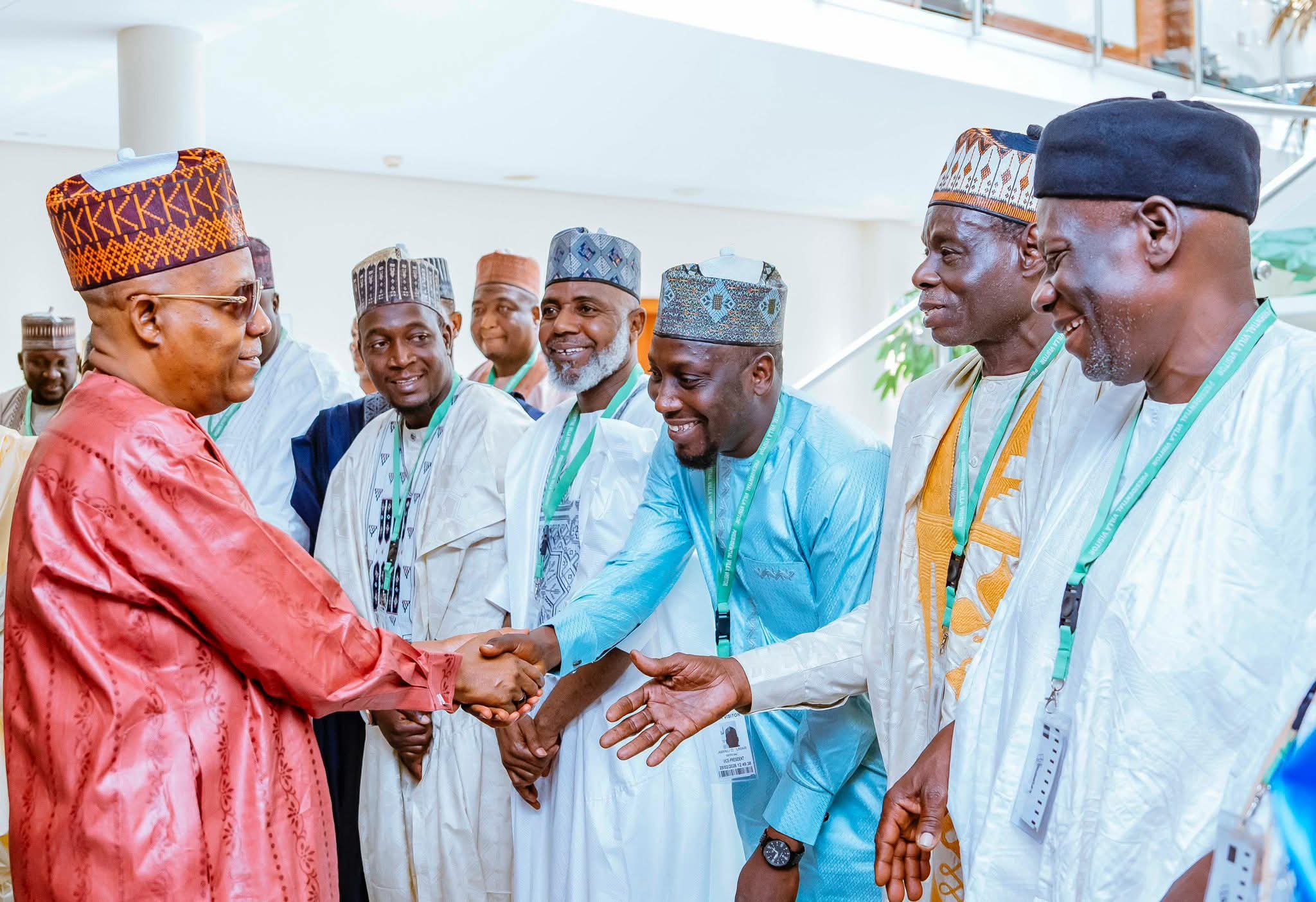
Nasiru Yusuf Ibrahim
Nigeria’s Vice President, Kashim Shettima, on Tuesday received a delegation from the Association of Kano Business Community at the Presidential Villa, Abuja, during a thank-you visit to President Bola Ahmed Tinubu.

KANO FOCUS reports that the delegation expressed appreciation to the Federal Government for its support to traders and other victims affected by the recent fire incident that razed several sections of the popular Singer Market in Kano.
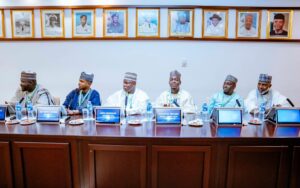
Speaking during the meeting, the Vice President reaffirmed the Federal Government’s commitment to collaborating with the Kano State Government and relevant agencies to prevent a recurrence of fire outbreaks in markets across the state.
He assured the delegation that President Tinubu has the interests of Kano people at heart, noting that the N5 billion approved as immediate relief for victims was based on the findings of a preliminary assessment of the damage caused by the inferno.
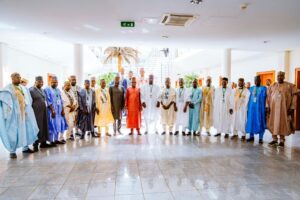
Shettima reiterated that the Federal Government would continue to support efforts aimed at restoring commercial activities and strengthening safety measures in markets to protect lives and property.

Headlines
Kano Govt inaugurates 23-member committee to disburse Singer market fire relief
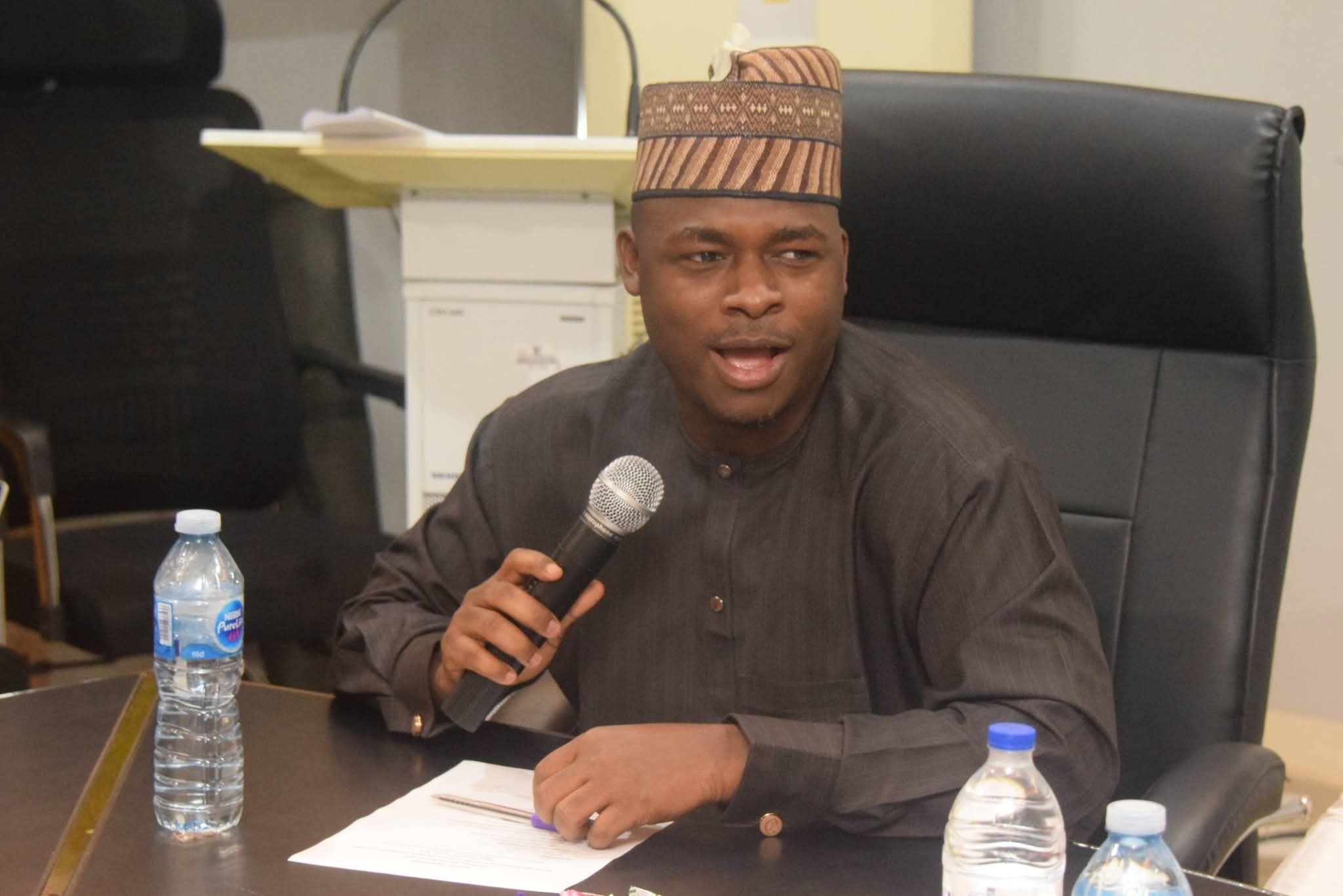
Nasiru Yusuf Ibrahim
The Kano State Government has inaugurated a 23-member committee to oversee the transparent and equitable distribution of financial assistance and relief materials to victims of the recent Singer Market fire disaster.

KANO FOCUS reports that the inauguration was carried out on behalf of the Secretary to the State Government, Umar Faruq Ibrahim, who chairs the committee. The event was presided over by the state Attorney-General and Commissioner for Justice, Abdulkarim Kabiru Maude.
According to the Attorney-General, the committee comprises representatives from key government agencies, security services, the Kano Emirate Council, religious leaders, and affected traders.
He said the panel’s mandate includes assessing the extent of losses, verifying genuine victims, ensuring timely distribution of support, and recommending measures to prevent future fire incidents.
The intervention follows support approved by President Bola Ahmed Tinubu, as well as contributions from the APC Governors Forum. It also comes in addition to earlier assistance provided by Governor Abba Kabir Yusuf and the Deputy Senate President, Barau I. Jibrin.
The state government reaffirmed its commitment to supporting victims of the disaster and restoring commercial activities at Singer Market.

Headlines
Kano Govt announces March 1 for schools’ Ramadan break
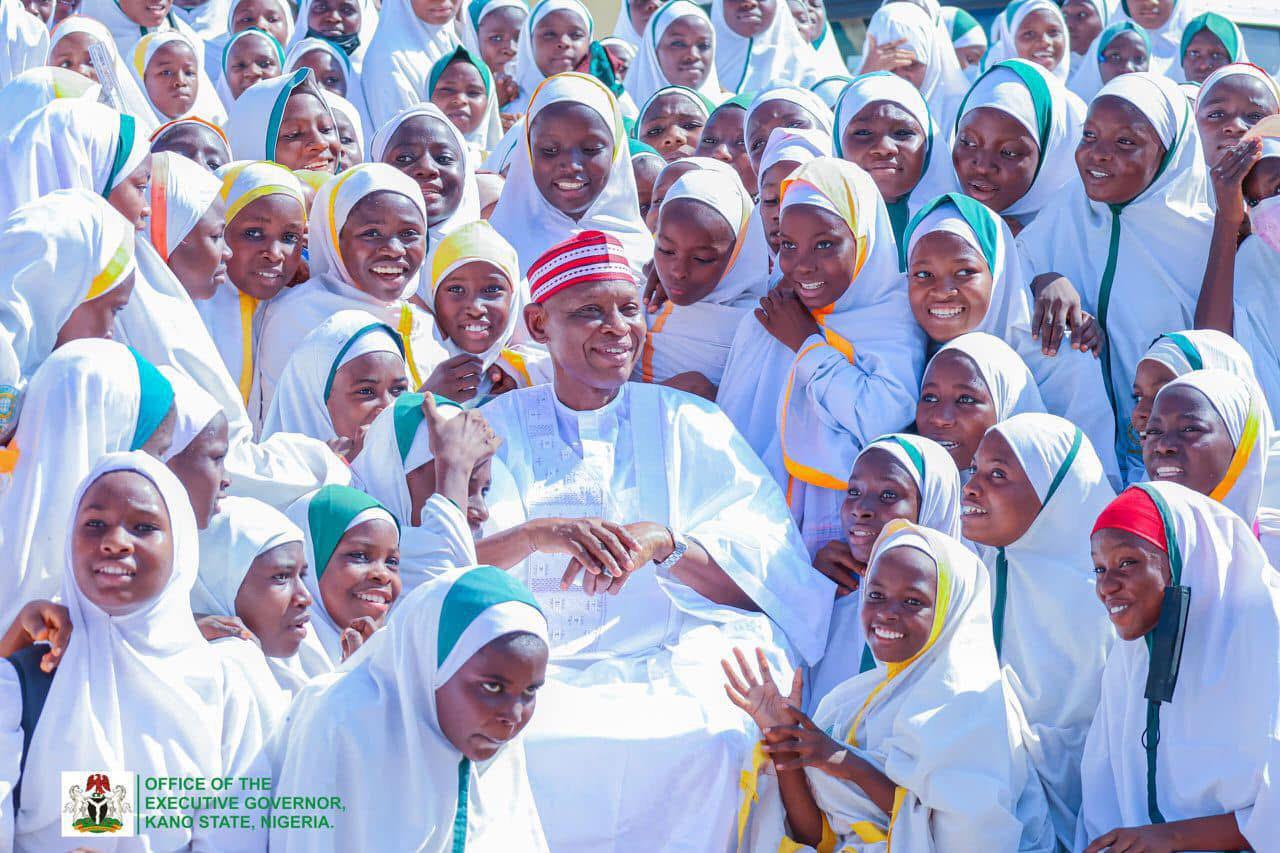
Nasiru Yusuf Ibrahim
The Kano State Government has announced Saturday, March 1, 2026, as the commencement date for the Eid-el-Fitr break for all public and private primary and post-primary schools in the state.

KANO FOCUS reports that the announcement, contained in the approved 2025/2026 academic calendar, applies to both day and boarding schools across the state.
According to a statement issued by the Director of Public Enlightenment, Musbahu Aminu Yakasai, parents and guardians of pupils and students in boarding schools are expected to convey their wards home by the early hours of Friday, February 28, 2026.
The statement further explained that boarding school students are to resume on Sunday, March 22, 2026, while day students are to resume on Monday, March 23, 2026.
It added that the second term will continue from Sunday, March 22, 2026, and end on Saturday, April 18, 2026.
The government directed all public and private schools in the state to comply strictly with the directive, warning that non-compliance would be treated as a breach of government instructions.
The Commissioner for Education, Ali Haruna Abubakar Makoda, urged parents and guardians to ensure full compliance with the approved resumption dates.
He appreciated parents and residents of the state for their continued cooperation and support to the ministry, and wished pupils and students a successful completion of the Ramadan fast and hitch-free Sallah celebrations.












